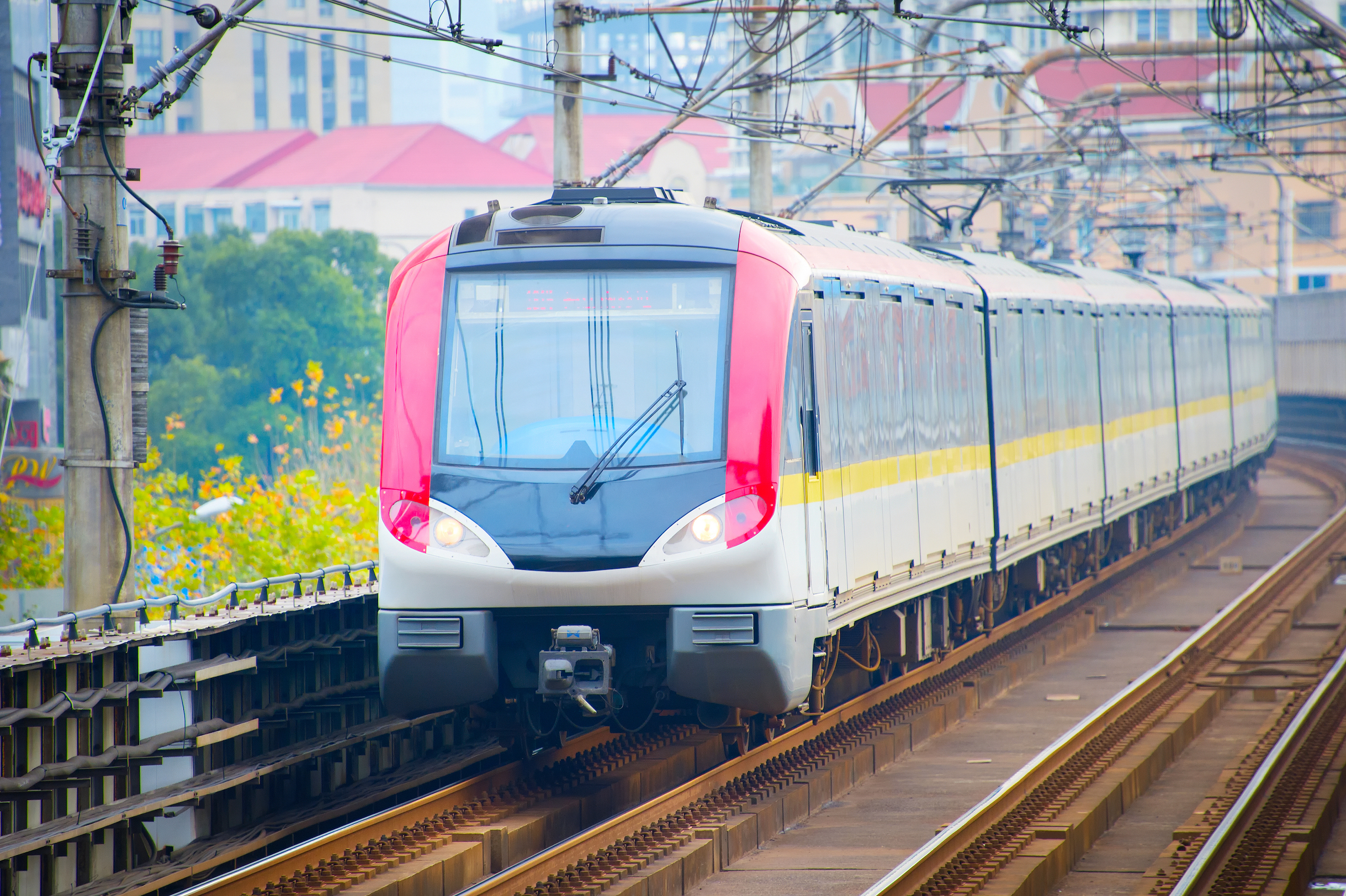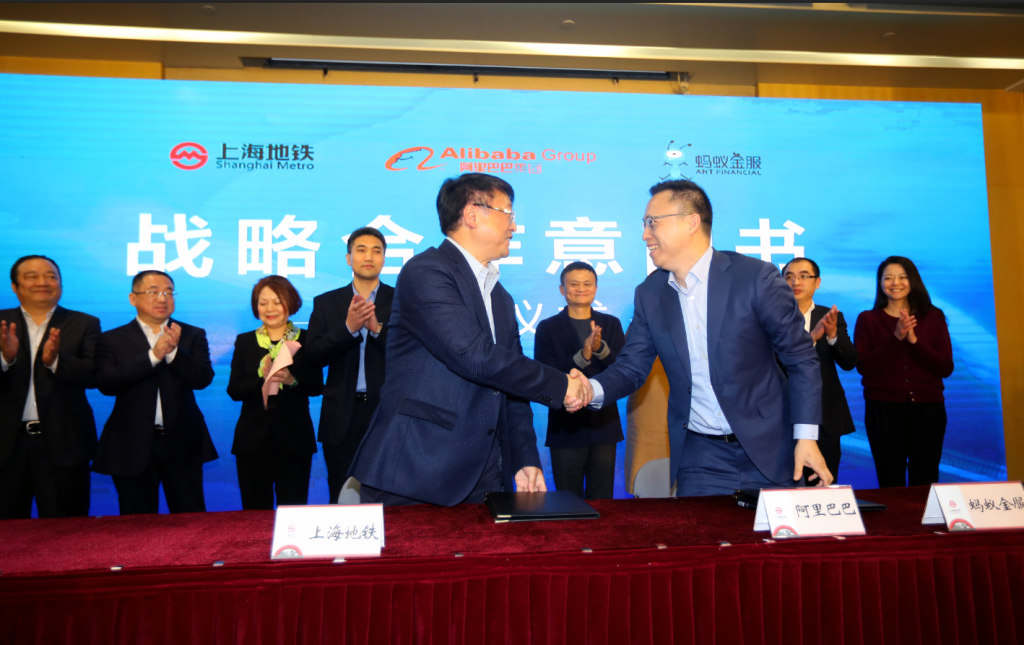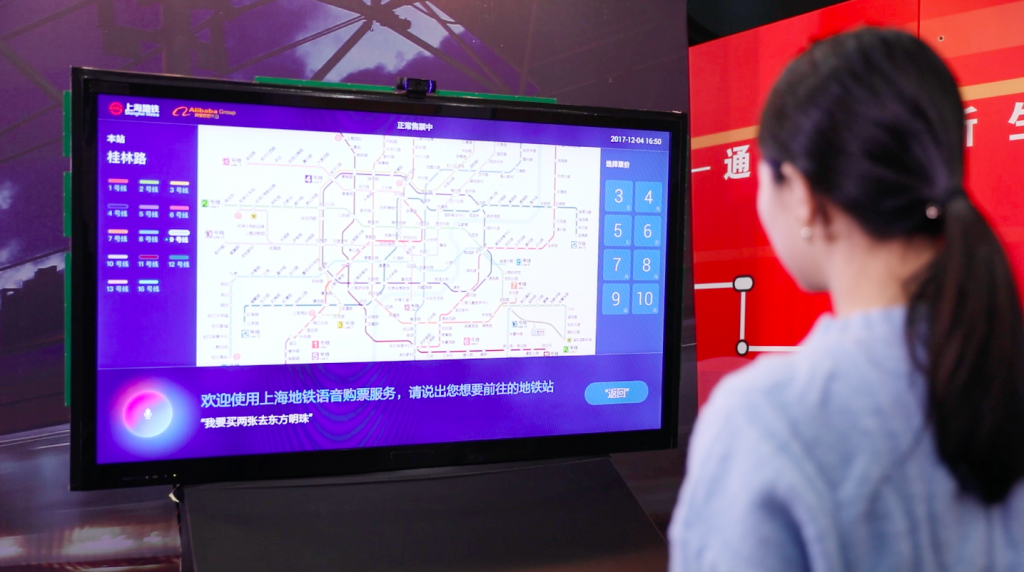
What will the future of transportation look like? Alibaba is working with Shanghai Metro to find out.
Alibaba Group and Alipay-operator Ant Financial on Tuesday signed a strategic collaboration agreement with Shanghai Shentong Metro Group, operator of the Shanghai Metro, to improve the experience of subway commuters in Shanghai through artificial intelligence (AI) technology.
Per the agreement, Shanghai Metro’s mobile app, METRO, which provides passengers with subway-related news updates and route suggestions, will include an Alipay payment option to access all of its stations in the city, starting early next year.
Once the new form of payment goes online, there will be no need for commuters to bring change to buy tickets or even carry subway cards. They will be able to walk in and out of subway gates with a simple swipe of their smartphone. Alipay wouldsupport payment without Internet connection, and if passengers forget to top up their accounts, it also allows users to enter stations first and pay after their trip.
At the signing at Shanghai Shentong Metro Group’s headquarters, Alibaba engineers demonstrated an AI-powered ticketing machine that combines Ant Financial’s payment system, mapping technology from the Alibaba-owned navigation firm AutoNavi with far-field voice-recognition technology. The far-field voice technology can pick up sound input from a user speaking to the system several meters away, even in noisy environments.

Already accounting for nearly 53 percent of all the public transportation in the Chinese metropolis of 24 million people, the ever-growing Metro network features 4,000 trains serving 17 lines and 367 stations. For passengers unfamiliar with Shanghai’s subway system, pinpointing the specific station on the map to buy tickets can be a complicated ordeal.
The new ticketing system Alibaba is developing automatically activates when a person comes near. The person can tell the machine its desired destination, saying, for example, “I want to go to the Pearl Tower.” The system will suggest the closest stop, and customers can instantly pay via Alipay.
“Traditional voice-interaction technology has been applied to quiet environments in the home or in cars, but our voice-recognition ticketing machine is the first of its kind to realise far-field voice interaction in noisy public spaces like a subway station, with accuracy,” said Zhijie Yan, director of intelligent speech recognition.

“Through combining signal-processing and computer-vision technology, we are able to better identify sound sources and solve the problem of intense noise disturbance,” and the machine automatically initiatiates interaction once users step near, so they won’t have to “wake up the machine,” said Yan.
The ticketing machine is one of several potential technologies the three parties will explore as part of their collaboration.
Apart from using voice-recognition technology to make the ticket-buying experience smoother, Alibaba also has plans to help Shanghai Metro optimize its existing traffic-management system and enable better predictions of when and where congestion is likely to occur. Another plan is to help employ facial-scanning technologies at subway gates, reducing the time required to enter and exit terminals.
According to Shangai Metro’s official data, average daily traffic on the Shanghai Metro stood at 9.28 million individual trips last year, making it second only to Beijing’s busy subway.




